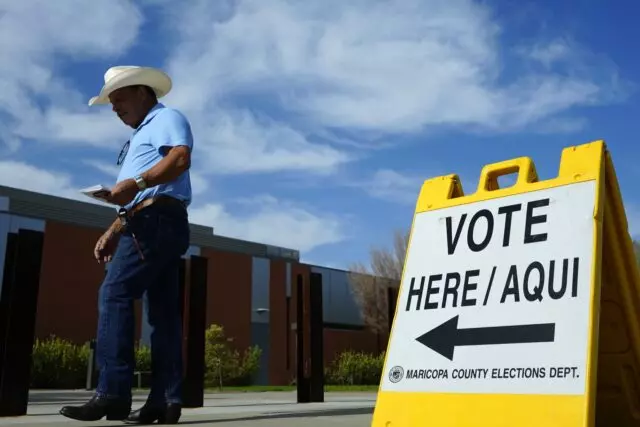The Arizona Supreme Court has unanimously ruled in favor of nearly 98,000 people whose citizenship documents hadn’t been confirmed and allowed them to vote in state and local races. The court’s decision comes after officials discovered a database error that for two decades mistakenly designated the voters as having access to the full ballot. Previously, these voters were only entitled to cast ballots in federal races, including for president and Congress, regardless of how the court ruled.
Secretary of State Adrian Fontes, a Democrat, and Stephen Richer, the Republican Maricopa County recorder, had disagreed on what status the voters should hold. The high court, which leans Republican, agreed with Fontes and said county officials lack the authority to change the voters’ statuses because those voters registered long ago and had attested under the penalty of law that they are citizens. The justices also mentioned the little time left before the Nov. 5 general election.
Of the nearly 98,000 affected voters, most reside in Maricopa County, which is home to Phoenix, and are longtime state residents who range in age from 45 to 60. About 37% of them are registered Republicans, about 27% are registered Democrats, and the rest are independents or affiliated with minor parties.
Arizona is unique among states in that it requires voters to prove their citizenship to participate in local and state races. Voters can demonstrate citizenship by providing a driver’s license or tribal ID number, or they can attach a copy of a birth certificate, passport, or naturalization documents. Arizona considers drivers’ licenses issued after October 1996 to be valid proof of citizenship. However, a system coding error marked nearly 98,000 voters who obtained licenses before 1996 — roughly 2.5% of all registered voters — as full-ballot voters, state officials said.
The error between the state’s voter registration database and the Motor Vehicle Division has since been resolved. That number of votes could tip the scales in hotly contested races for the state Legislature, where Republicans hold a slim majority in both chambers. The decision may also influence ballot measures on the constitutional right to abortion and a state law that would criminalize non-citizens for entering Arizona through Mexico at any location other than a port of entry.
Though Richer and Fontes disagreed over the status of the voters, both celebrated the court’s ruling. Fontes called the ruling a “significant victory for those whose fundamental right to vote was under scrutiny,” while election officials will be contacting affected voters who need to update their proof of citizenship after the election.

